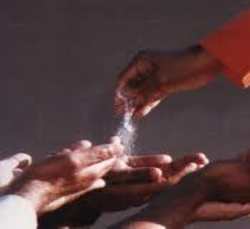In Addition
Vol 3 Número 5
September/October 2012
Are you Sabotaging Your Sleep?
After a marathon meeting at work or a fight with a significant other, it may seem impossible to enjoy eight hours of blissful sleep. But those tough times may be when we really need the rest, since skimping on sleep actually makes it more difficult to handle stress. So stop tossing and turning. We've got the best tips on how to get a good night’s sleep even when you're stressed.
Beat the Bedtime Blues -- Your Action Plan
Don't work in bed, or even in the bedroom. Turning the sheets and pillows into a makeshift desk makes it harder to see the bed as a place for rest. And definitely put away the laptop, phone, and any other technological devices well before bedtime. The artificial light coming out of these gadgets can mess up the body's natural sleep cycles.

Go to sleep at a reasonable hour. (And make it a habit.) Especially when we're overwhelmed with work, it can seem tempting to stay up all night putting the final touches to a project. But pulling an all-nighter can make it much harder to focus the next day. And consistently staying up until sunrise may impair learning abilities and contribute to higher anxiety levels. (Now that's something to get stressed about.) Stick to a regular bedtime and things may look better in the morning.
Wind down. It's important to take some time to unwind between stopping work and crawling under the covers. Try taking a warm shower or sipping some herbal tea. If nagging worries are keeping you awake, write them down in a journal. Or mellow out as you're drifting off with some relaxing music.
Take a power nap. If the stress monster kept you from getting a solid night's rest last night, try dozing off during the day. Ten to 20 minutes should be enough to wake up feeling refreshed and more alert. Just make sure to keep naps to the afternoon, so you'll still be able to sleep soundly at night.
http://www.livestrong.com/blog/are-you-sabotaging-your-sleep#ixzz26kWO1Bzt
What Is Skin Cancer?
The term skin cancer is used to describe a number of different cancerous conditions that affect the skin. There are two main categories of skin cancer: melanoma and non-melanoma cancers. Non-melanoma cases are the most common and the most curable types of skin cancer. Melanoma, though also curable when caught early, is the deadliest form of skin cancer.
There are a few different types of non-Melanoma skin cancers. Melanoma is in a class all on its own.
Non-Melanoma Skin Cancers-Basal Cell Carcinoma
Basal cell carcinoma starts in the lowest layer of the epidermis, the basal layer. It is responsible for three out of four skin cancer cases, usually affecting areas maximally exposed to the sun, like the face. The most common forms look like small firm pale bumps, or a raised spot that is pearly and pink or reddish in colour. These cancers spread slowly and respond very well to treatment.
Squamous Cell Carcinoma
This cancer also begins in the epidermis, but in the top layer. These look like lumps, with reddish and rougher surfaces and can start in the same areas of the body as the basal cell cancers.
A big difference between these two skin cancers is that squamous cell is more likely to spread, making it a bigger threat to your overall health.
Melanoma
Melanoma is also related to sun exposure but more so with a history of a bad sunburn in areas like the back and lower legs. This is much less common than basal cell and squamous cell carcinomas, but melanoma is much more serious. What makes it so dangerous is the fact that it is more likely to spread to other organs in the body and can actually lead to death.
Melanoma starts in melanocytes, the cells that produce the colour in skin. These cells make you tan or freckle in the summer and often, but not always, turn cancer cells brown or black, which is actually good. This way, you can spot this cancer before it's too late.
Preventing Skin Cancer
The reason the sun is harmful to your skin is because it contains dangerous ultraviolet light, or UV rays. Here are some ways to protect yourself and your children from these rays.
Stay out of the sun for extended periods of time. This is especially important during the peak hours between 10 am and 4 pm. Remember, the UV rays are just as powerful on cloudy days as they are on sunny days.
Use sunscreen daily. Use a "broad spectrum" sunscreen with an SPF of 15 or higher. Fair-skinned people should use SPF 30 or higher. Apply sunscreen 20 to 30 minutes before going outside and re-apply every 2 hours.
Wear protective clothing. This can include wide-brimmed hats, sunglasses, and clothing with a tight weave fabric. Also, darker colours will offer more protection.
Get to know your skin. Check your skin for any changes, especially in moles and freckles. There are specific variables you should be aware of, which can be easily identified using the ABCDEs.
What Are the ABCDEs?
This is a simple way for you to remember what to look for in changes in the skin.
-
Stands for 'Asymmetry.' - Does your freckle or mole look uneven?
-
Stands for 'Border Irregularity.' - Are the edges irregular?
-
Stands for 'Colour Variation.' - Are you seeing multiple colours within the lesion?
-
Stands for 'Diameter.' - Is it wider than 6 mm?
-
Stands for 'Evolution.' - Is the colour, size or symptom changed?
Treating Skin Cancer
The good news is that skin cancer, when detected early, is very curable. This includes melanoma.
If you spot any changes in your skin as described above, you should call your doctor. He or she may perform a biopsy to confirm the presence of skin cancer.
Treatment of skin cancer may include minor or office surgery, or something more extensive like radiation or chemotherapy. It depends on the type and stage of the skin cancer you have.
Some skin cancers are recurrent, even if already treated. So it's important to perform regular self-skin exams, especially if you've been diagnosed with skin cancer in the past.
Sources: What You Need To Know About Skin Cancer. Rockville, MD.: National Cancer Institute.: 2005. (Accessed October 17, 2009 at http://www.cancer.gov/cancertopics/types/skin.)
Sai Vibrionics offers health information and articles for educational purposes only; this information is not meant as allopathic medical advice. Counsel your patients to see their allopathic medical doctor about their specific health condition.
